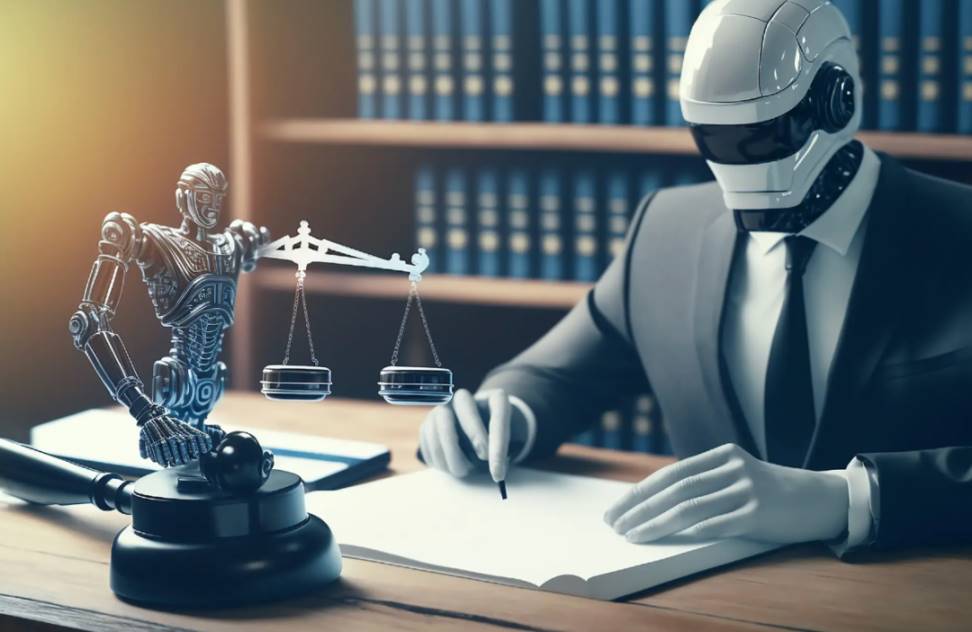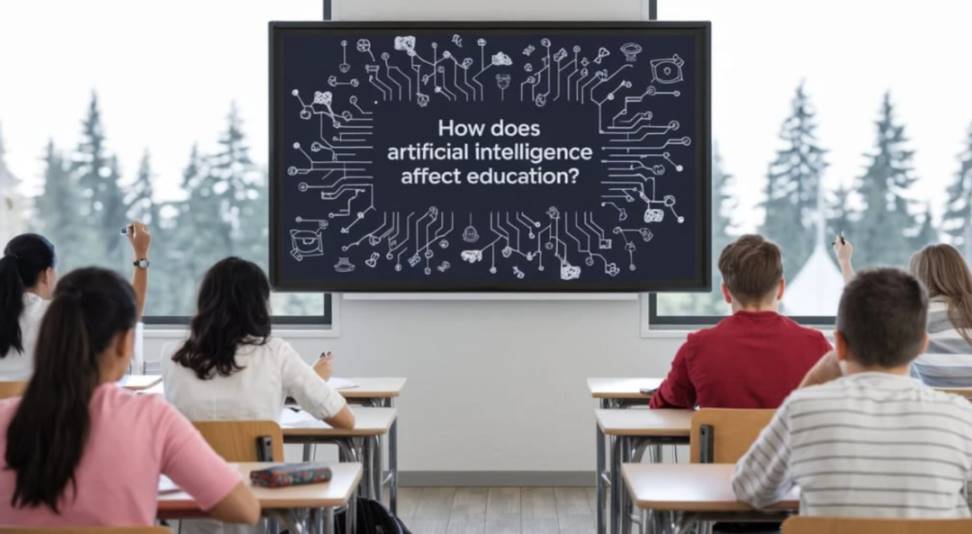撰文:元宇宙之心
当我们见证人工智能(AI)融入日常生活时,往往会聚焦于那些最引人注目的例子:能写诗的聊天机器人、算法创作的艺术作品,又或是自动驾驶汽车。
然而与此同时,我们却忽视了人工智能已经在一些专业领域里,解决了那些影响数百万人生活的问题。
英国 BCCM 集团创始人、风险投资 IT 专家 Vladimir Kokorin 表示:「人工智能真正的影响力,并非体现在硅谷的科研实验室或公司总部里,而是在于这些技术如何改变人们的生活。」
我们将从他的观点出发,探索那些不为普通读者所知的人工智能应用领域。
01.预测自然灾害
想象一下:外面的暴风雨云才刚刚开始聚集,但你已经知道降水何时开始、会是什么样的情况,以及何时结束。而且你清楚这些乌云是否会演变成一场危险的自然灾害。
在抗击自然灾害中,人工智能展现出了相当强大的能力。
过去,气象学家使用的是庞大的物理模型,需要在功能强大的超级计算机上耗费数小时进行运算。如今,像谷歌 DeepMind 的 GraphCast、英伟达的 FourCastNet 以及华为的盘古气象等模型,能在几分钟内完成同样的工作,而且结果往往更好。
Kokorin 解释道:「基于人工智能的预测系统就像一个放大镜,能让我们最细致地观察天气情况。这种精准度对于救援行动以及对自然灾害的及时响应来说至关重要。」
目前,欧洲中期天气预报中心已经在使用这些新工具。他们将世界地图划分成微小的方格,以便进行更细致的分析。
初创公司 Atmo 更进一步,他们的模型能以一英里的精度观测天气,而旧系统的精度只能达到 5.5 英里的范围。这就好比模糊照片和高分辨率图像之间的差别,这种精度能帮助救援人员和相关部门更迅速地应对即将来临的风暴、洪水或干旱。
02.法律行业的 AI 革命
汤森路透的一份报告显示,77% 的律师认为,人工智能将在未来五年内给他们所在的领域带来重大变革。更能说明问题的是,72% 的律师认为人工智能对他们的职业发展是一个积极因素。
Kokorin 指出:「AI 让律师从繁琐的日常任务中解脱出来,使他们能够专注于职业的创造性方面。在法律实践中,我们看到一些以前曾遭到抵制的技术如今正被迅速采用。」
这种转变源于实实在在的好处:基于人工智能的文件审查、研究以及合同分析工具,可以为律师节省大量的工作时间。仅对美国律师而言,这就意味着能提高 2.66 亿小时的工作效率。
市场也相应地做出了反应。由人工智能驱动的法律服务公司 Legora 最近进入了美国市场,并成为全球领先律师事务所 Goodwin 的合作伙伴。
在从 Benchmark、YCombinator 和 Redpoint 等投资者那里筹集到超过 3500 万美元的资金后,Legora 现在为近 20 个国家的客户提供服务,帮助律师专注于最重要的事情,即为客户服务。
Kokorin 评论道:「我们看到 AI 不仅在改变技术流程,还在变革那些几十年来一直保持保守态度的整个行业。投资者对这类项目的兴趣日益增长,正是因为它们确实提高了专业人士的工作效率。」
一些律师事务所走得更远,正在开发自己的基于人工智能的工具。
Allen & Overy 与人工智能初创公司 Harvey 联合开发的一项服务,能够帮助客户确定在超过 130 个司法管辖区中,哪些地方在企业合并的情况下可能需要提交监管文件,同时还能识别缺失的数据并生成信息请求。这些任务传统上需要初级律师花费数小时的时间,并且还需要高薪专家的监督。

03.AI 在教育与包容方面的力量
在当今世界,有关人工智能的讨论往往集中在其潜在的危险或令人印象深刻的技术能力上,而在教育和包容性领域的应用案例却常常被忽视。
Kokorin 认为:「在教育和包容方面,人工智能展现出了其真正的人文主义潜力。这些技术的应用让我们能够消除残障人士面临的障碍,并为那些以前无法获得优质教育的人开辟新的视野。」
人工智能平台 Digify Africa 帮助非洲偏远地区的贫困学生获得受教育的机会。在一所英国学校里,有沟通障碍的孩子们借助人工智能创作自己的歌曲,从而开辟了自我表达的新途径。
耶鲁大学教授布 Brian Scassellati 在一次采访中表示,在特殊教育领域,人工智能机器人有助于患有自闭症的孩子融入社会,这些孩子对这些机器的反应「与他们对玩偶或宠物的反应不同」。
Kokorin 指出:「那些帮助残障人士在新层面上与世界互动的技术尤为重要。人工智能在这一领域的发展理应得到比目前更多的关注和投资。」

对于失聪和听力障碍人士,像 Ava 这样的公司正在开发内置人工智能的移动应用程序,能够提供实时转录功能,使得在课堂、商务会议和公共活动中的交流变得更加容易。
美国国家聋人技术学院与微软合作,为有失聪学生的讲座开发了一种字幕技术,并使用该校特定的专业术语和词汇对软件进行了训练。
而对于身体残障人士,Voiceitt、Cognixion 和 Parrots Inc 等初创公司正在开发将独特的语音模式、脑电波和眼球运动转化为数字指令的技术。
这些工具使用户无需动手或开口说话,就能操作电脑、浏览数字环境并控制设备,为他们提供了以前难以想象的独立生活能力。
04.AI 技术的真正价值
人工智能的真正价值在于它能够改变人们的日常生活,体现在那些让残障儿童找到自我表达途径的教室里,体现在让司法变得更加公平的法庭上,也体现在那些通过更高效的预测和响应挽救生命的灾区中。
Kokorin 强调,尽管这些人工智能应用可能不像会说话的机器人或算法生成的艺术作品那样吸引眼球,但它们对社会的影响却更加深远且意义重大。正是在这些领域,技术展现出了其真正的潜力,它并非目的本身,而是解决人类紧迫问题的有力工具。
Kokorin 总结道:「有效利用人工智能的道路,在于实现创新与责任、技术进步与道德准则之间的平衡。而这样的未来,是值得我们去投资的。」
免责声明:本文章仅代表作者个人观点,不代表本平台的立场和观点。本文章仅供信息分享,不构成对任何人的任何投资建议。用户与作者之间的任何争议,与本平台无关。如网页中刊载的文章或图片涉及侵权,请提供相关的权利证明和身份证明发送邮件到support@aicoin.com,本平台相关工作人员将会进行核查。




